Driving While Distracted: It's not just texting anymore
Story highlights
- More than eight people are killed each day by distracted driving
- Nearly 70% of teen drivers say they use apps while driving, according to a survey
- "Pokemon Go" is the latest concern for distracted-driving advocates
See the weeklong series "DWD: Driving While Distracted" online.
(CNN)When
you are driving, how often do you see other drivers checking their
phones while behind the wheel? And, be honest, how often do you do it
yourself?
The problem has gotten so big that highways across the country now regularly warn drivers "Don't text and drive." And 46 states and the District of Columbia have laws banning texting and driving.
But the issue isn't just talking and texting anymore. Drivers are on
Snapchat, Facebook, Instagram, Twitter, Google Maps, Spotify, YouTube
and now "Pokemon Go," the video game that has captured the world's
attention and has become the latest concern for distracted-driving
advocates.
Recently, a man was accused of crashing his vehicle into a parked police car in Baltimore while playing "Pokemon Go." In Napa, a teenage driver who may have been playing the popular video game ran her truck into a power pole.
Jennifer Smith, a mother of two and founder of the advocacy group StopDistractions.org, lost
her mother in a crash nearly eight years ago when a 20-year-old who was
talking on the phone drove through a stoplight. Since then, she has
devoted her life to helping other families that have become victims of
distracted driving.
"As
I'm talking to new families, more and more of them are telling me,
'It's Snapchat,' " said Smith, whose daughters were 1 and 13 when their
grandmother was killed in Oklahoma City. "It's Snapchat today, but then
what is it tomorrow? You know, we've got the 'Pokemon Go' coming, and
then it's the next thing."
Smith,
who works full-time supporting families, lobbying for legislation and
planning public awareness events, said people need to really focus on
what's important. "Social networking while driving is not necessary and
should not be done by anyone, in any way, who's driving. Period. And
somehow we've got to make the whole country understand that."
Judging by the results of a recent survey, we have a long way to go in getting that message out.
Nearly 70% of teens say they use apps while driving, according to a just-released survey of 2,500 high school-age children
across the country. When the teens were asked to rank the behaviors
they consider the most distracting or dangerous for a teen driver, 29%
said driving under the influence of alcohol and 25% said writing or
sending a text message. Only 6% said actively looking at or posting to
social media is the most distracting or dangerous behavior behind the
wheel for a teen driver, according to the survey by Liberty Mutual
Insurance and Students Against Destructive Decisions (SADD).
In another survey (PDF), this one sponsored by the National Safety Council and
focusing on 2,400 drivers of all ages, 74% said they would use Facebook
while driving, and 37% said they would use Twitter while behind the
wheel, with YouTube (35%) and Instagram (33%) close behind.
"It's
a slippery slope," said Deborah Hersman, president and chief executive
officer for the National Safety Council. "I would say most people see
this line as a fairly blurry one and not a bright line."
'An under-reported issue'
Every day, more than eight people are killed and more than 1,000 are injured in crashes reported to involve distracted driving, according to the National Highway Traffic Safety Administration. Distracted driving includes activities such as talking on a cell phone, texting and eating.
But
the number of those killed and injured is probably much higher, said
Hersman. "There's a dearth of good data," she said. It's a challenge to
prove that crashes were the result of distracted driving, especially
when survivors may be reluctant to admit they were using their phone.
"We
know that it's an under-reported issue and it's a lot like impaired
driving in that way where people know it's not acceptable to do it, and
yet a lot of people still do it anyway."
Based
on observations and crash data, the National Safety Council estimates
that about one-fourth of all crashes can be attributed to distracted
driving connected with use of a phone. "What we are seeing in the
observational data is that even though people are not being observed
talking as much as they were in the past on handheld phones, they are
seeing an increase in texting," Hersman said.
Looking at your phone to read one text is the equivalent of driving the length of a football field with your eyes off the road, according to the Centers for Disease Control and Prevention.
A single text increases your chances of crashing by at least six times, according to a study by the University of Utah.
'Anything can happen'
Matt
Boeve knows all too well how deadly distracted driving can be. In June
2014, his beloved wife, Andrea, took their children, then 11 months and 4
years old, for a bike ride near their home and family farm in rural
Steen, Minnesota. At the same time, a driver, Chris Weber, a member of
the South Dakota National Guard and father of two, decided to make a
loan payment on his phone.
Weber says he looked down at his phone and heard a thud. He says he never saw Andrea and the girls.
"I
just knew he was on his phone. My gut told me that even before I got to
the scene. I knew. And it's tough. It's so preventable. I mean, we are
addicted to our phones," Boeve said. "Anything can happen, and that
anything happened to us."
Andrea
Boeve was killed, and 4-year-old Claire was seriously injured, with a
punctured lung and five broken ribs. Thankfully, she survived, and her
little sister wasn't hurt.
"You
think you can take your eye off the road a minute to read a text, to
check an app, but a split second took my wife and almost took my
children," he said.
Can personality predict distracted driving?
At the University of Alabama at Birmingham's distracted-driving research lab,
I took a ride on an SUV simulator to see just how dangerous distracted
driving can be. When I looked down to read or write a text or send a
message on Facebook, I swerved and nearly crashed every time.
"I
think, on average, you were taking your eyes off the road for five
seconds," said Despina Stavrinos, director of the university's
Translational Research for Injury Prevention (TRIP) Laboratory. "Many of
the times, when you are engaging in social media while driving, you are
taking your eyes off the road for long glances ... glances over two
seconds that significantly increase your crash risk."
Stavrinos, who is also an assistant professor in the school's department of psychology, and her colleagues recently conducted a study that found that personality may predict distracted driving, but the personality traits were different for teens versus older drivers.
In
the study, which looked at 120 teen and older drivers, the more
extroverted older drivers were more likely to be distracted drivers,
which seems to make sense. The more outgoing you are, the more likely
you are to want to stay connected with friends and family, even behind
the wheel.
But
the results for teen drivers were surprising. Conscientious teens were
the ones who were more likely to engage in texting and driving. "That is
kind of opposite of what we originally had hypothesized. These are
individuals that feel like they need to make others happy and fulfill
certain tasks, so it is very conscientious of them to reply to your
message," Stavrinos said.
The
research could be helpful in prevention efforts by using educational
campaigns to target people who have the personality traits that might
make them more likely to drive distracted, she said.
For Boeve, whose girls are now 3 and 6, part of the solution is just getting the word out.
"People
think that it won't happen to them. That's the just way it is. It's
sad. We have to retrain ourselves to think that ... no text or phone
call is worth putting someone through this."
Coming Tuesday: How distracted driving is not just a teen problem. Parents are to blame, too.
What do you think can be done to stop distracted driving? Share your thoughts with Kelly Wallace on Twitter @kellywallacetv.
Αναδημοσίευση:http://edition.cnn.com



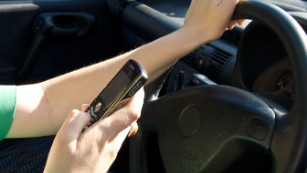
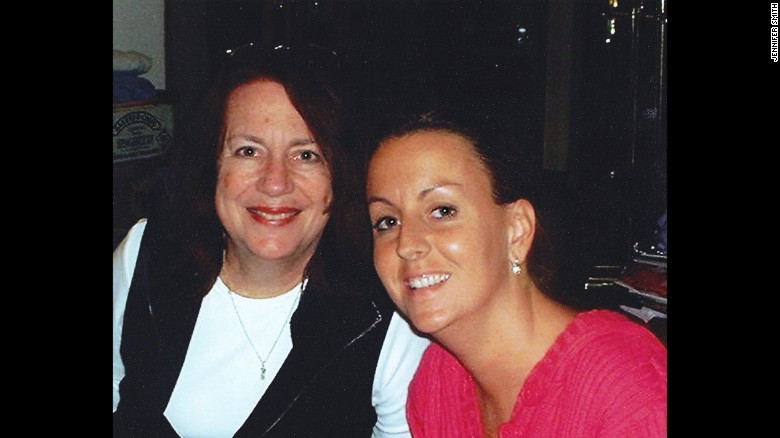
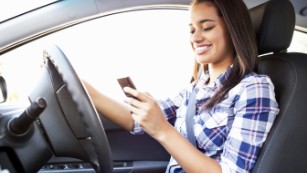
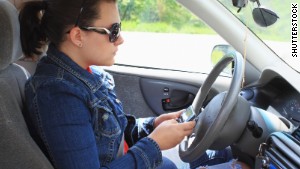

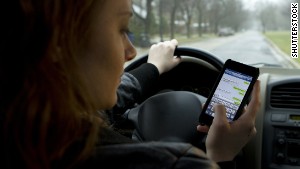



Δεν υπάρχουν σχόλια:
Δημοσίευση σχολίου